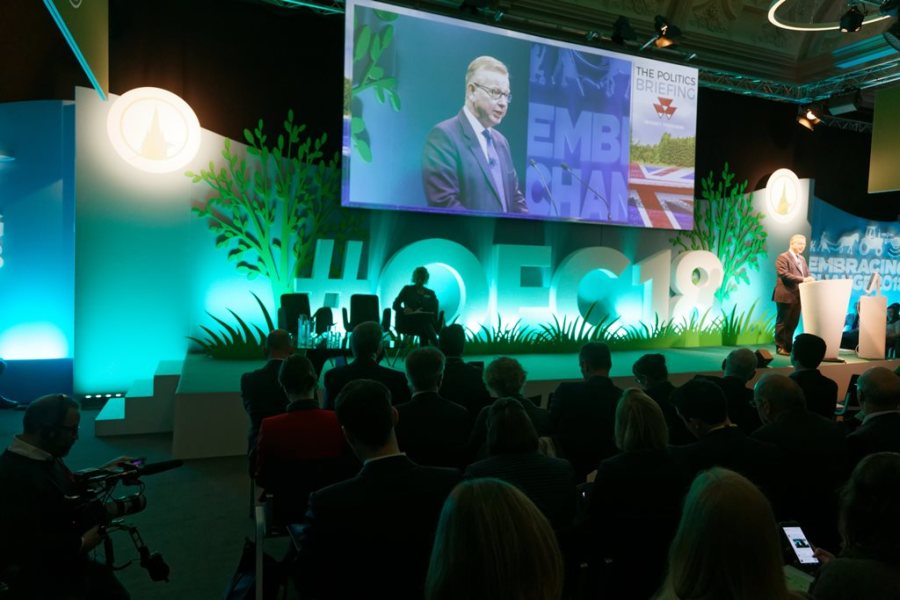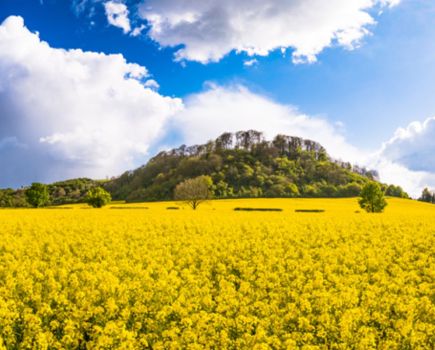Leading agriculture politicians from the UK, US and EU have laid out some of the changes in trade and environmental policy farmers will face when the post-Brexit transition gets underway. CPM reports.
There is a tremendous opportunity for productivity improvement in our farms.
By Tom Allen-Stevens
Defra secretary Michael Gove has stated that farmers will be given up to five years to adapt to a new British Agricultural Policy after Britain exits the EU.
He used his speech at the Oxford Farming Conference to announce some of the plans his department has for a “Green Brexit” that has “natural capital thinking” in its approach. On subsidy, Defra intends to phase out area-based payments and replace them with “public money for public goods”.
Keen to see farming embrace change, he said that “technological change is at an inflection point” and insisted Government will be taking a risk-based approach to scientific developments in agriculture.
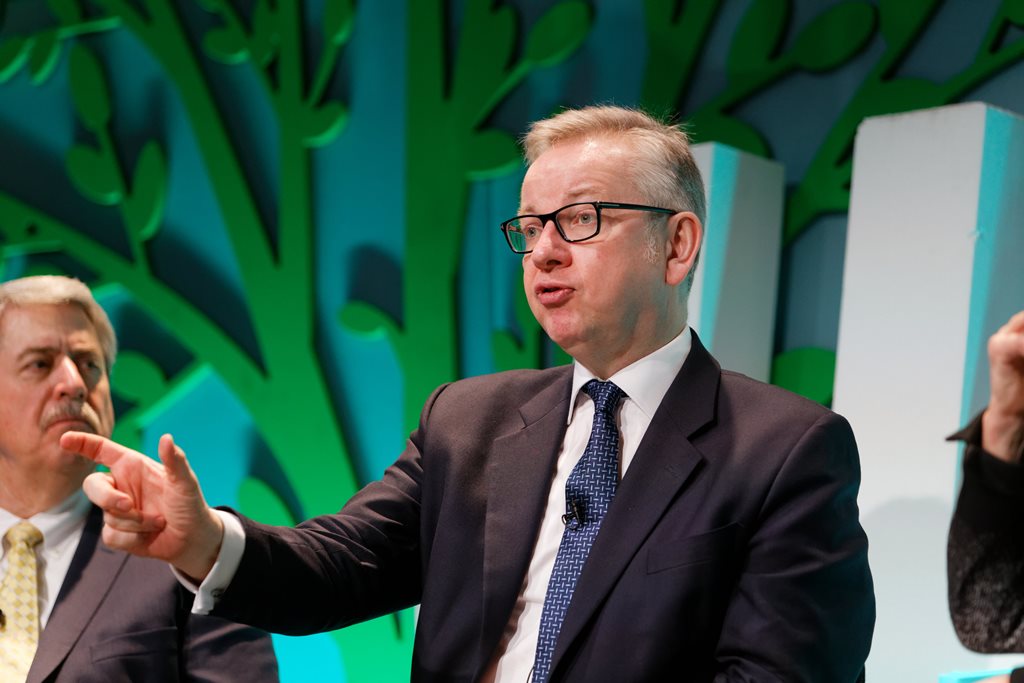
Michael Gove gave direct answers to questions on glyphosate and GM technology.
Policy on food and food-related exports will strive to maintain a high level of “quality and provenance”, he said, aiming to compete at the top of the value chain. He indicated Government was looking to help by creating a “new gold-standard metric” to recognise this.
Ted McKinney, under secretary for trade and foreign agricultural affairs at the US Department of Agriculture, told delegates that the US is “open for trade” with the UK. But he stressed very clearly that “trade is two-way street” and pointed out phytosanitary agreements cannot be used as a means to interfere with trade.
Paolo de Castro, vice chairman to the European Parliament’s Committee on Agriculture and Rural Development, said any agreements the UK makes with other countries in the rest of the world that are not totally in line with European standards, “could be a problem” with the EU.
Meanwhile Dieter Helm, one of the Government’s own advisers on natural capital, warned farmers that rewards for any environmental gains should be balanced by compensation they’d pay for losses through full implementation of the polluter pays principle.
Content-rich
Michael Gove’s speech was widely acclaimed as one of the most content-rich and decisive that any minster has delivered from a conference podium in recent years. Unlike his predecessors, he addressed questions directly.
For example, he was asked by Andrew McShane of Hutchinsons whether the Government will be following a science-based regulatory approach for approving crop protection and other products into UK agriculture, and in particular with glyphosate.
“Yes,” stated Michael Gove. “Glyphosate is a valuable tool to ensure you can have more environmentally sustainable methods of cultivation which help to protect and enhance soil quality. We have to take a science and risk-based approach to make sure that farmers have the tools they need to farm productively. Glyphosate is part of that and it needs to remain part of it.”
Edward Moorhouse, an MBA student at Royal Agricultural University, asked whether he was advocating the adoption post 2019 of GM seeds technology. “No, I’m not,” replied the minister, but indicated his support for gene editing.
“The science is in its infancy, but I do think that it’s important we regard gene editing as a means of science helping us do faster what farmers have been doing for generations, which is essentially to accelerate the process of breeding and evolution.”
Clarity on the timetable for Brexit and what level of subsidy farmers could expect was given. “Paying landowners for the amount of agricultural land they have is unjust, inefficient and drives perverse outcomes,” said Michael Gove. “They reward incumbents, restrict new thinking and ultimately hold back innovation and efficiency.”
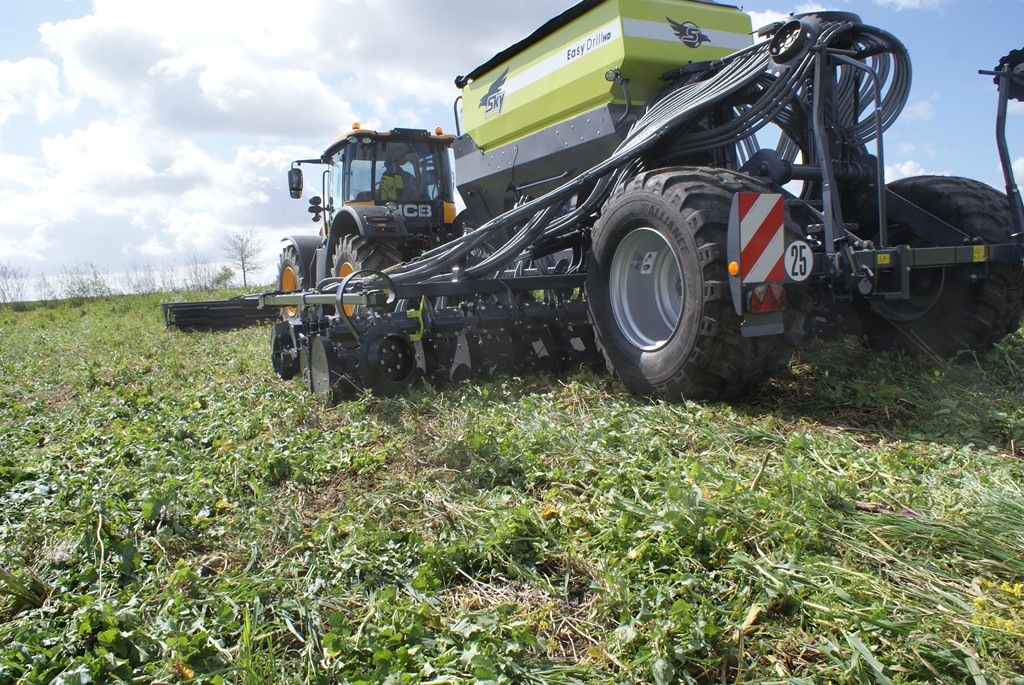
Efforts to improve soil health and keep more carbon in the soil, such as min or no-till approaches, will be encouraged.
Payments in 2019 will be made on the same basis as 2018. There will then be a “transition period” of up to five years during which a new policy will be phased in – consultation on that policy gets underway this spring. The landmark points on this roadmap are:
- 29 March 2019 – the point at which Britain leaves the EU.
- 31 Dec 2020 – the end of the transition period with the EU, also referred to as the “implementation period”, after which new trade agreements with the EU will come into force and Britain will no longer be subject to EU laws.
- 2022 – the probable date of the next general election, up to which point the Government has pledged it will continue support for farmers “in cash terms” at the same total level as it does currently.
- 2024 – the probable end of the transition period, after which the new agricultural policy will be in full effect.
“During these years, we propose to first reduce the largest BPS payments in England,” said the minister. The idea behind an “extended transition period” is that it will provide time for farmers to change their business model, which may include support for those who wish to leave the industry. After that, BPS will be replaced with a system of public money for public goods.
This forms the centre-piece of Michael Gove’s vision of a Green Brexit, with a 25-year Environmental Plan to build natural capital at its heart. The principle public good is environmental enhancement and he sees “no inherent tension between productive farming and care for the natural world”. Efforts to improve soil health and keep more carbon in the soil, such as min or no-till approaches, will be encouraged, he said.
Ecosystem services
Payments will also be made for ecosystem services, such as improvements to water quality, increasing biodiversity, providing new habitats for wildlife and returning cultivated land to wildflower meadows. He also wants to see investment in technology and skills alongside infrastructure, public access and rural resilience.
“There is a tremendous opportunity for productivity improvement in our farms. We already have some of the best performing farms in the world and there is no reason why our farmers cannot lead the way globally in achieving better levels of productivity through adoption of best practice and new technologies.”
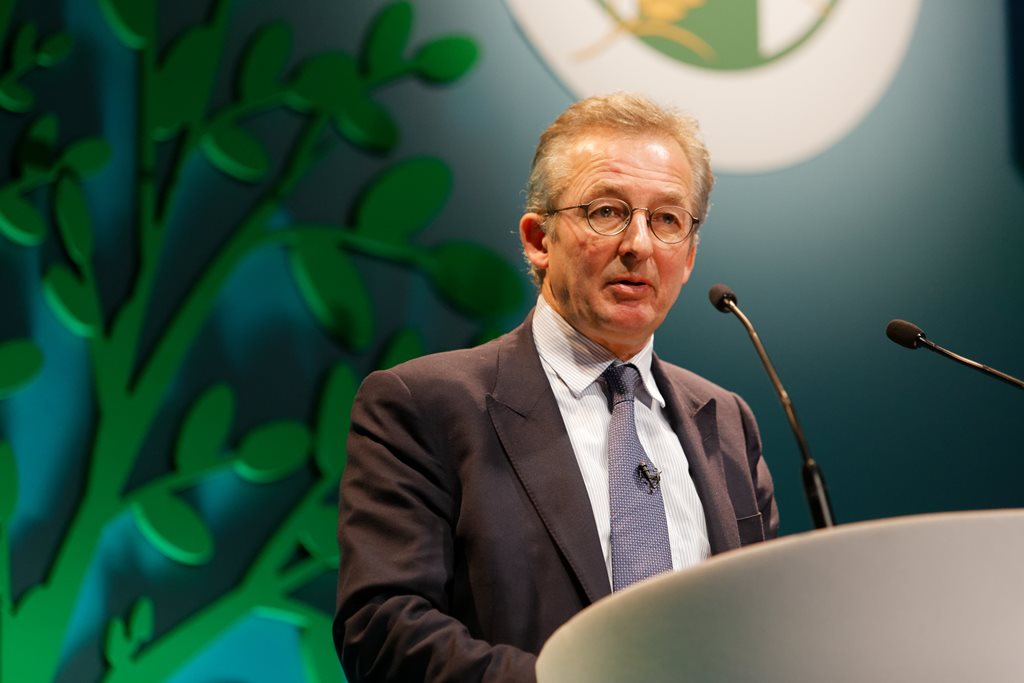
Farmers should pay for the depletion they cause to natural capital, said Dieter Helm.
Speaking after Michael Gove, Dieter Helm, professor of economic policy at Oxford University, tempered the minister’s enthusiasm for redirecting subsidy. He was one of the architects of the 25-year Environmental Plan, designed to reverse what he said has been a tendency by farming to undermine natural capital and depreciate the natural environment.
“Natural capital includes assets, such as soils, landscape and water, that Nature gave us for free. The entire world’s economy depends on them and they’re what farmers use every day. These can’t be allowed to depreciate – depletion of those assets is a depletion of prospects for future generations.”
He said it was “extraordinary” that farmers expect to be paid not to pollute the environment and suggested they should pay for carbon depletion, for example. What’s meant by public goods needs definition, he added, and he doubted taxpayers would have much of an appetite post Brexit to fund these rather than spend more money on the NHS.
“Agriculture’s output is £9bn – that’s about 0.7% of GDP. Given the scale of its subsidies – about £3bn – the actual economic value net of these is very, very small indeed.”
Michael Gove’s plan includes a “coherent policy on food,” however, and he stressed that “the heart of almost all farming businesses is food production.” He pointed to the new White Paper on food and drink.
“It’s the UK’s biggest manufacturing sector and one of its fastest growing with an increase of 8% in exports to the EU and 10% in exports outside the EU in the first three quarters of last year alone.”
He’s looking to put in place a new gold-standard metric for food and farming to sit alongside the Red Tractor and LEAF Marque that will take into account such things as soil health, control of pollution, contribution to water quality as well as animal welfare. Outside the EU, he said it would be a measure that would be world-leading. “Pursuing new trade opportunities outside Europe can make us more competitive with Europe,” he said.
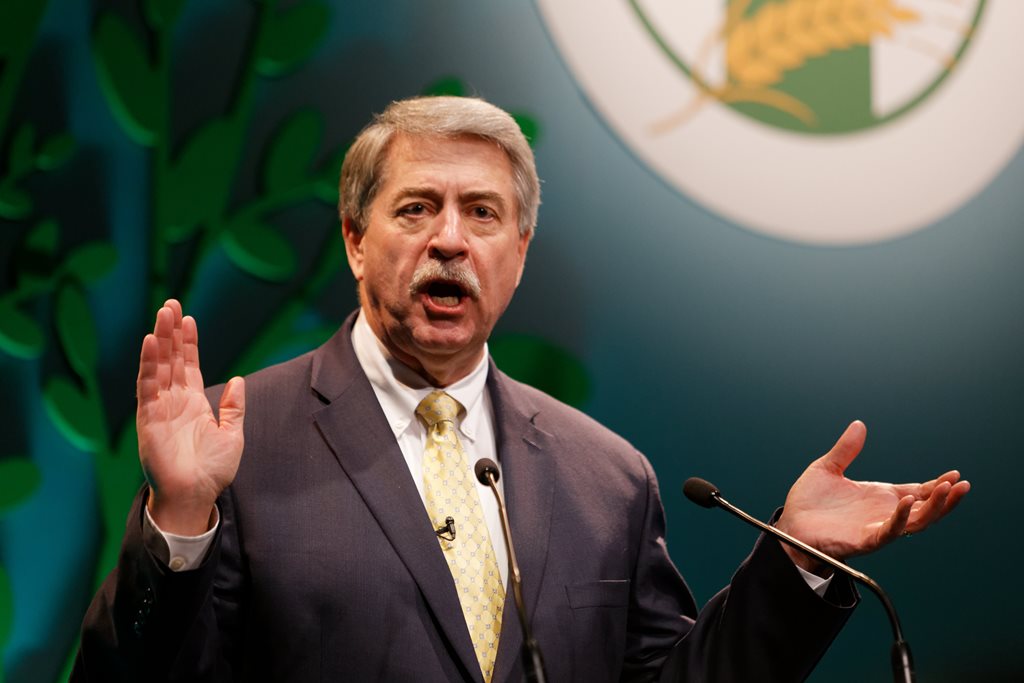
The US is open to trade but it’s a two-way street, noted Ted McKinney.
But “trade is a two-way street,” said Ted McKinney no fewer than three times during his address. “If those high bars for animal welfare and the environment and other food safety orientations are met, [trade is] welcome. We are hoping for the same from you.”
The US continues to see sanitary and phytosanitary barriers erected, he noted. “So we’re watching this wonderful opportunity from Brexit to see if the UK will be that trading partner we’d like to see, or will there be road blocks?”
Paolo de Castro warned that sanitary and phytosanitary rules might become a particularly sensitive issue in the Brexit trade negotations. “They are not technical barriers, they can be due to a lack of alignment of regulations. Any single new rule adopted [by the UK] without the sanction of the EU has the strong potential to result in a trade negative.”

